Oliver Cromwell was a politician and soldier, widely regarded as one of the most important
Oliver Cromwell was a politician and soldier, widely regarded as one of the most important statesmen in English history. He came to prominence during the 1639 to 1653 Wars of the Three Kingdoms, first as a senior commander in the Parliamentarian army and then as a politician. A leading advocate of the execution of Charles I in January 1649, which led to the establishment of the Commonwealth of England, Scotland and Ireland, he ruled as Lord Protector from December 1653 until his death in September 1658. Cromwell nevertheless remains a deeply controversial figure in both Britain and Ireland, due to his use of the military to first acquire, then retain political power, and the brutality of his 1649 Irish campaign.
Educated at Sidney Sussex College, Cambridge, Cromwell was elected MP for Huntingdon in 1628, but the first 40 years of his life were undistinguished and at one point he contemplated emigration to New England. He became a religious Independent in the 1630s and thereafter believed his successes were the result of Divine providence. While he generally supported tolerance for the various Protestant sects of the time, he later opposed those he considered heretical, such as Quakers and Fifth Monarchists. In 1640, Cromwell was returned as MP for Cambridge in the Short and Long Parliaments, and joined the Parliamentarian army when the First English Civil War began in August 1642. He quickly demonstrated his military abilities and in 1645 was appointed commander of the New Model Army cavalry under Sir Thomas Fairfax, playing a key role in defeating the Royalists in the First and Second English Civil Wars.
Following the execution of Charles I and exile of his son, military victories in Ireland and against the Scots from 1649 to 1651 firmly established the Commonwealth and Cromwell's dominance of the new republican regime. In December 1653, he was named Lord Protector of the Commonwealth, a position he retained until his death in September 1658, when he was succeeded by his son Richard, whose weakness led to a power vacuum. This culminated in the 1660 Stuart Restoration, when Charles II returned to the throne, after which Cromwell's body was removed from its resting place in Westminster Abbey and displayed at Tyburn. His head was placed on a spike outside the Tower of London, where it remained for 30 years until reburied at Sidney Sussex College, Cambridge.
Cromwell has been variously described as a military dictator by Winston Churchill, and a hero of liberty by John Milton, Thomas Carlyle, and Samuel Rawson Gardiner, while the debate over his historical reputation continues. First proposed in 1856, his statue outside the Houses of Parliament was not erected until 1895, most of the funds being privately supplied by Lord Rosebery, then Prime Minister. In 2004, a group of MPs unsuccessfully proposed a motion to have it melted down.
EARLY LIFE AND EDUCATION
Cromwell was born in Huntingdon on 25 April 1599 to Robert Cromwell and his second wife Elizabeth, daughter of William Steward. The family's estate derived from Oliver's great-great-grandfather Morgan ap William, a brewer from Glamorgan who settled at Putney (at that time near London) and married Katherine Cromwell (born 1482), the sister of Thomas Cromwell, who would become the famous chief minister to Henry VIII. The Cromwells acquired great wealth as occasional beneficiaries of Thomas's administration of the Dissolution of the Monasteries. Morgan ap William was a son of William ap Yevan of Wales. The family line continued through Richard Williams (alias Cromwell), (c. 1500 to 1544), Henry Williams (alias Cromwell), (c. 1524 – 6 January 1604), then to Oliver's father Robert Williams, alias Cromwell (c. 1560 to 1617), who married Elizabeth Steward (c. 1564 to 1654), probably...
LINK TO ARTICLE: http://en.wikipedia.org/wiki/Oliver_Cromwell
TAGS: Oliver Cromwell, Parliamentarian military personnel of the English Civil War, Genocide perpetrators, Lords Lieutenant of Ireland, Lords Protector of England, Critics of the Catholic Church, English MPs 1653 (Barebones), English MPs 1648–1653, English MPs 1640–1648, English MPs 1640 (April), English MPs 1628–1629, People from Ely Cambridgeshire, Cromwell family, Roundheads, People convicted under a bill of attainder, Regicides of Charles I, People from Huntingdon, New Model Army generals, English people of Welsh descent, English people of Irish descent, Heads of state of England, English revolutionaries, English generals, English farmers, English Congregationalists, Deaths from malaria, Cromwellian Ireland, Chancellors of the University of Oxford, Anti-monarchists, Alumni of Sidney Sussex College Cambridge, 17th-century English Puritans, Oliver Cromwell
#GeneralKnowledge #AudibleWikiFactory #Audible #Wikipedia #OliverCromwell
-
 1:47:17
1:47:17
The Audible Wiki Factory
1 year agoSir Winston Leonard Spencer Churchill was a British statesman, soldier, and writer who served
90 -
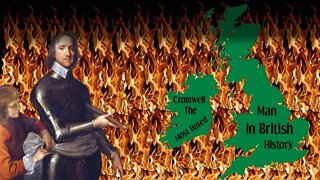 26:51
26:51
History Daddy
2 years ago $0.02 earnedOliver Cromwell | The Most Hated Man In British History
4731 -
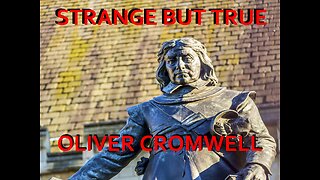 0:42
0:42
Smitty's Strange But True
6 months agoStrange but True: Oliver Cromwell
35 -
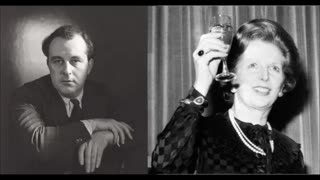 26:06
26:06
TonyGosling
8 months agoSteve Lacey - Why Politics is a charade and how the Rothschilds financed the British Empire-Dialect0
3061 -
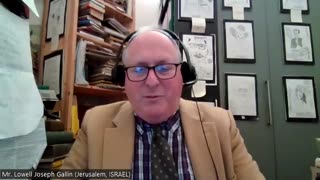 4:22
4:22
Lowell Joseph Gallin
6 months agoR&B Weekly Seminar: "Lowell's Three Minute History Lessons" (Episode #3 -- December 25th, 2023). Today's Topic: "Oliver Cromwell (1599-1658 C.E.) and the English Puritan New Model Army"
2191 -
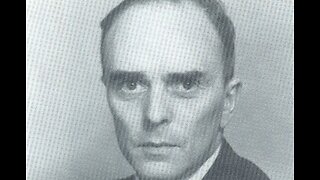 26:02
26:02
The Memory Hole
5 months agoAn Irish Statesman and Revolutionary: The Politics of Seán MacBride (1983)
758 -
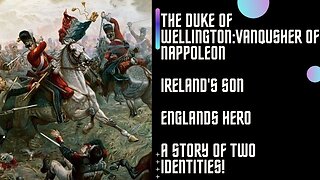 16:36
16:36
JaysRetroReactions
4 months agoThe Duke of Wellington: Napoleon's Vanquisher and Ireland's Son #waterloo #ireland #british #war
411 -
 26:02
26:02
The Memory Hole
1 month agoAn Irish Statesman and Revolutionary: The Nationalist and Internationalist Politics of Seán MacBride
477 -
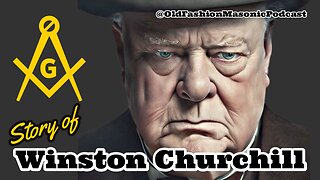 4:59
4:59
Old Fashion Masonic Podcast
7 months agoFreemason Prime Minister: The Story of Winston Churchill
113 -
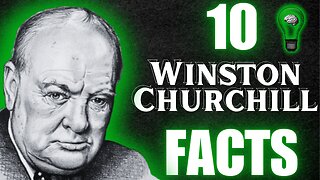 5:06
5:06
Sapiential Sage
1 year agoWinston Churchill's Enigmatic Legacy: 10 Fascinating Facts & Quirks of the War Hero Turned Icon!
82